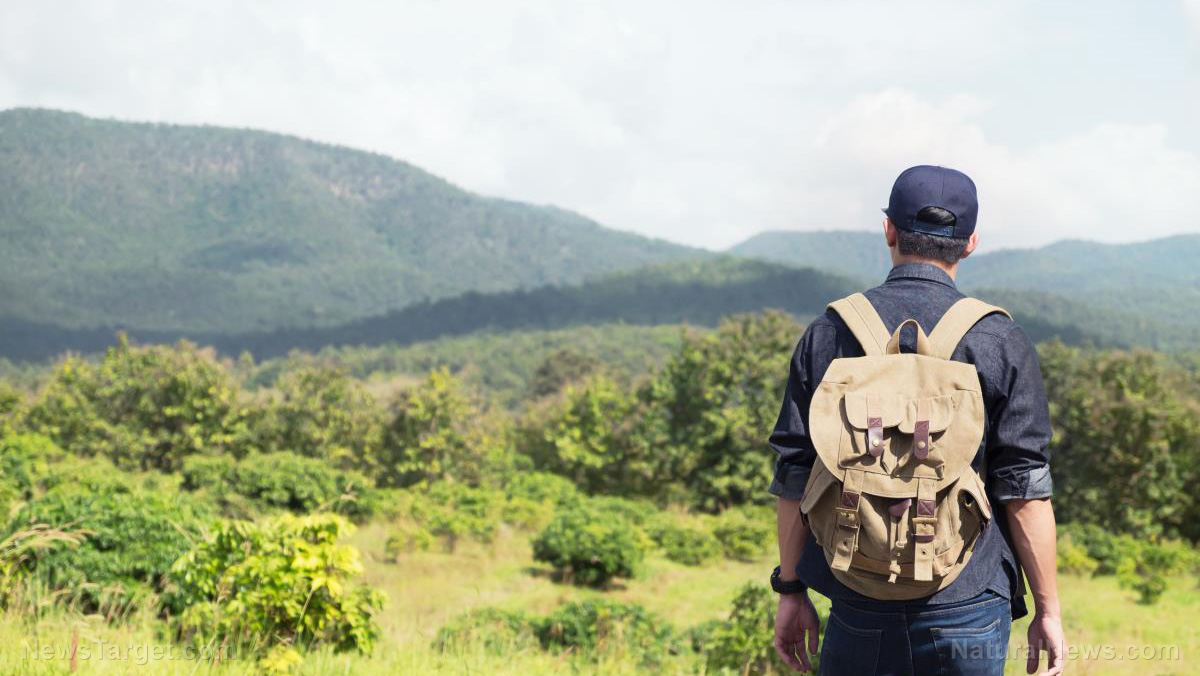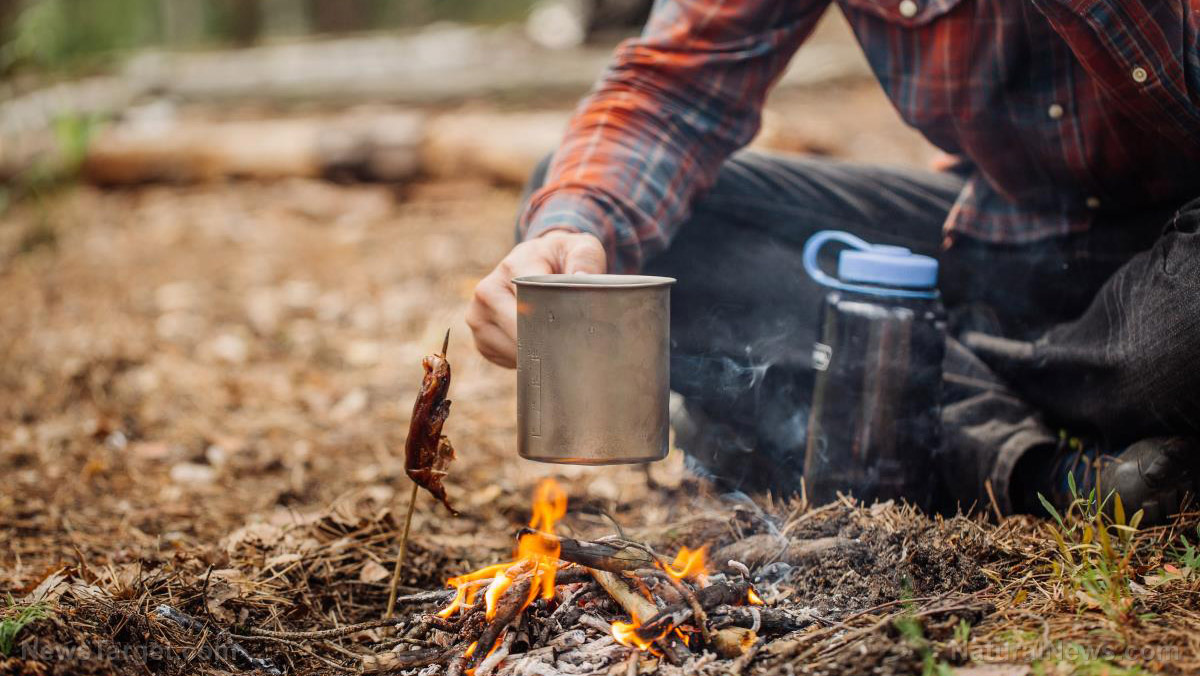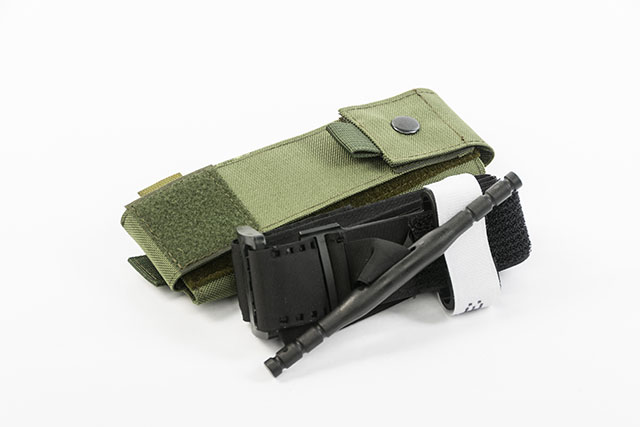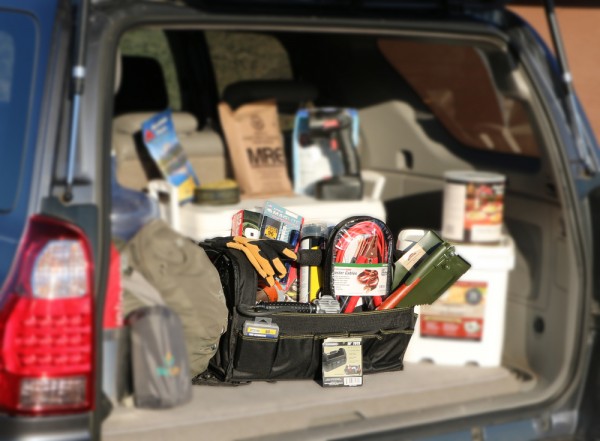Simple personal camouflage rules to follow
07/08/2018 / By Edsel Cook
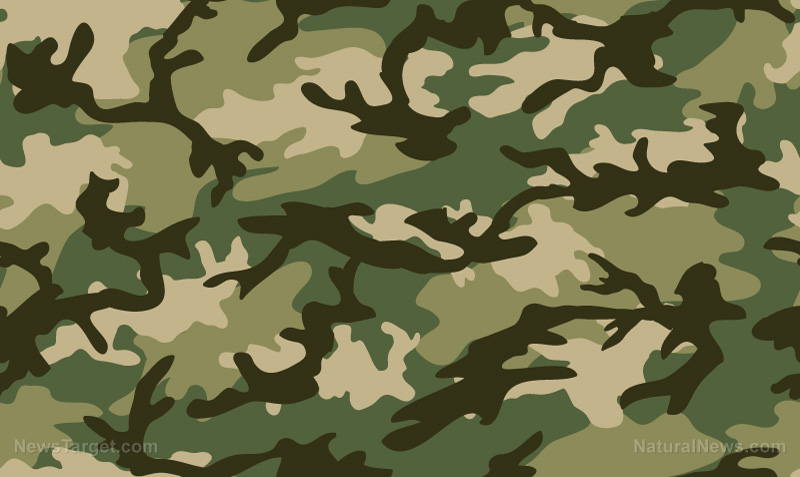
Personal camouflage has six simple but important rules. Adhere to them and you will be able to conceal yourself from unfriendly types, an article in Bushcraft and Survival Skills states.
The first rule is to make your shape look natural. The straight lines and smooth shapes of your man-made equipment must be broken up.
Add burlap strips, camouflage clothing, or brown-and-green netting to break up the shapes of your helmet, bags, and gear. Stitch elastic bands onto your clothes and equipment straps; they can hold strips of camo and vegetation.
Either paint your firearms or cover them up in camouflage tape. This prevents slippage that can get in your way.
The second rule is about removing or hiding any shiny object. Shiny objects and parts will reflect light, catch attention, and give your position away.
Get modern military equipment with non-shiny plastic parts or metal parts that have been painted over with softer colors. Paint or tape over any shiny parts.
Hide shiny equipment until you have a need for them. If you have to use them, try to avoid aiming them at sources of light that may hit the reflective surface.
Human skin will reflect light even when it’s night. Cover up exposed skin with clothing or camo face paint. (Related: Invaluable survival tips and tricks from the homeless.)
Break up your silhouette, avoid strong scents, and stay quiet
The third rule involves the silhouette, the recognizable outline of the human head, shoulders, and equipment. Break up your silhouette with local vegetation.
Add thick clumps of grass into your shoulders to disrupt the noticeable “head and shoulders” shape. Also, add plants to your helmet to break up the curved top and straight brim.
Use the right amount of vegetation. Too much will get in your way or attract attention.
Finally, avoid standing against the skyline. Do not walk along the top of a hill or ridgeline. Likewise, avoid standing against a solid background.
The fourth rule involves masking your scent. The human sense of smell is not given enough credit. So do not use items with strong scents. If you need soap, use the scent-free ones.
Cooking and activities that generate strong scents should be restricted to daytime. The air is warmer and other strong smells are abundant during the day. And take any food-related rubbish with you.
The fifth rule is about suppressing sounds. Avoid making any loud or unnecessary noise. Use hand signals instead of talking out loud. If you need to converse, do it in a whisper.
Secure your gear so that their contents do not jostle. Tape up any loose equipment that makes noise. Before you move out, shake everything to see if there is something that makes noise.
Tips for applying camo on your skin
The last rule concerns color. Pick camouflage that matches your surroundings. Do not use woodland BDU pattern in urban environments or desert camo in snow-covered terrain.
Inspect your camo on a regular basis. Swap out the vegetation you use for camouflage when it changes color, dries up, or stands out in the area you are going to move through.
Use a commercial camo cream on your exposed skin. G.I camo sticks are also good.
Loam-and-light green camo is best in lush environments. Put on sand-and-light-green for places with few plants. For snowy places, use loam-and-white camo.
Put just a little baby oil, insect repellent, or skin lotion on your skin. This makes it easier to use a G.I. camo stick.
Apply dark colors on your cheekbones, chin, ears, forehead, and nose. Put lighter colors beneath your eyes, under your nose, and below your jaw.
You can find more survival-related tips and tricks at Survival.news.
Sources include:
Tagged Under: camouflage, camouflage clothing, camouflage face paint, camouflage gear, Gear, hiding, off grid, stealth tactics, survival, survival skills



